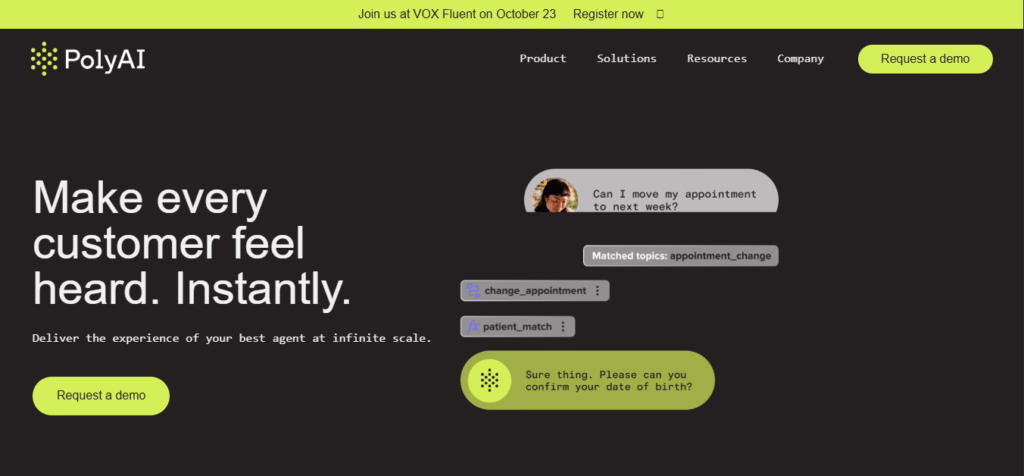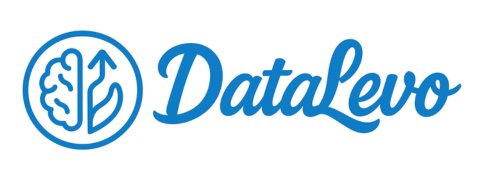In a world filled with AI chatbots, a nagging question often surfaces. Given all the news about data breaches and privacy concerns, you might find yourself asking, Is Poly AI safe? That concern is valid. When you interact with an AI, you’re sharing information—your questions, your commands, your unique needs. This isn’t just about convenience; it’s about trust. Can you confidently hand over sensitive information to a machine without worrying about where it goes or who sees it?
The good news is that the best Artificial Intelligence companies understand this concern. Many, like Poly AI, have built their platforms from the ground up with a focus on security and privacy. The simple answer is yes, with the right safeguards and a clear understanding of its functions, a service like Poly AI can be a safe and secure platform. This post will explore the critical layers of protection and the company’s approach to data security, empowering you with the knowledge to make an informed decision.
Poly AI is a conversational AI platform designed for customer service and business automation, and its safety is based on a multi-layered approach to security, privacy, and ethical compliance. The company publicly outlines its commitment to data protection, using robust encryption, strict access controls, and compliance with major regulations like GDPR and CCPA.
Artificial intelligence systems, by their very nature, require data to learn and operate effectively. For a conversational AI, this means processing your questions and commands. For businesses using the technology, it can mean handling incredibly sensitive information, from financial details to health data. This flow of information creates a point of vulnerability. Hackers are always on the lookout for weak spots, and a breach can lead to severe privacy violations. For a service like Poly AI, which handles customer interactions for major companies, a strong security framework isn’t just a feature—it’s a fundamental requirement.
Think about the sheer volume of data involved. Every call to a customer service line, every question asked, every piece of feedback given—it’s all data. And if that data isn’t handled with extreme care, the risks of exposure increase dramatically. A platform’s security is only as strong as its weakest link, which is why a holistic approach is so essential. This is exactly why the question, Is Poly AI safe?, is so important for users and businesses alike.
What Makes an AI Platform Truly Safe?
When we talk about whether a platform is safe, we’re not just asking if it’s protected from hackers. We’re also talking about privacy, ethics, and transparency. A truly safe AI platform operates on a framework that addresses all these areas in a comprehensive manner.
First, there’s technical security. This includes things you don’t see, like end-to-end data encryption, firewalls, and regular penetration testing. A good platform will have these safeguards in place from the very beginning. Next, there’s privacy. This is about how your data is handled, stored, and used. A company must have clear, easy-to-understand policies that protect your personal information and give you control over it. Finally, there’s the ethical side. This includes everything from preventing AI bias to being transparent about how the AI works and what its limitations are.
A recent
Gartner Peer Insightsreport on conversational AI platforms notes thatPoly AIit consistently scores highly on security and privacy standards, which are key concerns for business clients. [Source: PolyAI Reviews, Ratings & Features 2025]
Is Poly AI safe?

Is Poly AI safe? Poly AI maintains its safety by adhering to strict security protocols and a transparent approach to data management. The platform uses advanced encryption for all data, both in transit and at rest, ensuring that conversations are scrambled and unreadable to unauthorized parties. This means that from the moment you send a message, it is protected by powerful cryptographic keys. The company also states that its systems are hosted on secure infrastructure and undergo regular, independent third-party audits to identify and fix vulnerabilities before they can be exploited. This proactive approach is a cornerstone of their trust-building strategy.
A Deeper Look at Poly AI’s Security Measures
Beyond the high-level commitments, what are the specific steps that make this platform secure?
How Poly AI Protects Your Data
- Data Encryption: This is a basic but essential layer of defense. When you chat with a Poly AI bot, your data is encrypted as it travels from your device to the server. It remains encrypted when stored in their databases. This is like putting a digital lock on every piece of data, making it useless to anyone without the key.
- Third-Party Audits: To ensure their security measures are effective, Poly AI hires independent security firms to conduct regular audits. These audits act like external checks, testing the system for any vulnerabilities.
- Strict Access Control: Access to customer data is limited to a small number of authorized personnel, and this access is logged and monitored. This ensures that only those with a legitimate need can view sensitive information, minimizing the risk of internal breaches.
Navigating the Regulatory Landscape
- GDPR and CCPA Compliance: Poly AI is designed to be compliant with major data protection regulations like GDPR (General Data Protection Regulation) and CCPA (California Consumer Privacy Act). These strict laws give users control over their data, requiring companies to be transparent about what they collect and how they use it.
- ISO 27001 Certification: While not always required, having a certification like ISO 27001 shows a company’s dedication to information security management. This internationally recognized standard proves that an organization has robust controls in place to protect its data.
Building Trust Through Open Communication
- Clear Privacy Policies: Poly AI provides clear, easy-to-understand privacy policies that explain exactly what data is collected, why it’s collected, and how it’s used. This level of transparency builds trust with users.
- Responsible Use Policies: The company also provides guidelines for its clients and developers, ensuring that their AI technology is used in a responsible and ethical manner, minimizing the risk of misuse or harmful applications.
The Role of User Responsibility
Even the most secure platform can’t protect you from every risk. A lot of the responsibility for online safety falls on the user. Your actions are a key part of the security chain.
Here are a few actionable steps you can take to ensure your experience with Poly AI is safe:
- Be Mindful of What You Share: Avoid sharing highly sensitive information that isn’t necessary for the conversation. For example, don’t share your Social Security Number unless a service specifically requires it for a verified process.
- Review the Privacy Policy: This might seem tedious, but it’s a crucial first step. Understand what data is collected, how it’s used, and your rights as a user.
- Use Strong Passwords: If you have an account, make sure your password is secure and not reused from other websites. A password manager can help with this.
Poly AI Alternatives
- Genesys: This platform is a complete customer experience solution. It goes beyond simple AI conversations to manage the entire customer journey across all channels, from phone calls to social media.
- Kore.ai: A powerful, flexible tool that allows you to build complex AI assistants with little to no code. It’s a great choice for businesses that need deep customization and want to control their AI’s functionality across different channels.
- Replicant: Focused exclusively on voice automation for contact centers, Replicant is an excellent alternative for companies with high call volumes. Its platform automates entire conversations and provides valuable insights from every interaction.
- LivePerson: An industry veteran that specializes in connecting conversations. It offers an open platform that lets businesses use their own large language models (LLMs), providing a lot of flexibility for tailoring their AI strategy without a complete tech overhaul.
Conclusion
So, to circle back to our original question: Is Poly AI safe? The evidence suggests that it is, largely because of its dedication to comprehensive security measures, privacy compliance, and transparency. While no online service is entirely without risk, Poly AI has implemented robust safeguards like data encryption, human oversight, and a commitment to regulatory standards. They are actively building a trustworthy platform, but it’s a two-way street. By understanding their security practices and exercising your own caution, you can use the technology with greater confidence. This is how we move forward with AI: not with blind trust, but with informed understanding.
If you want to learn more about AI tools and their safety guides, check out the following blog posts.
FAQs
Are poly AI chats private?
Yes, Poly AI’s privacy policy indicates that it uses encryption and other security measures to ensure chats are private and secure, in compliance with data protection laws.
Does poly AI track you?
Poly AI, like most online services, may track user interactions and usage data to improve its services, but it does so in line with its privacy policy and data protection regulations.
Is poly AI actually good?
Based on user reviews and industry analysis, Poly AI is generally considered a high-quality conversational AI platform, particularly praised for its natural-sounding voice assistants and seamless integration.
Are there real people behind poly AI?
Poly AI is a company founded by real people and has a team of developers and researchers; however, the conversational assistants you interact with are AI systems, not live human agents.
What are the main security risks with Poly AI?
The main security risks with any AI platform, including Poly AI, are data breaches, misuse of data, and potential algorithmic bias; however, Poly AI mitigates these risks with encryption, compliance, and ongoing audits.





